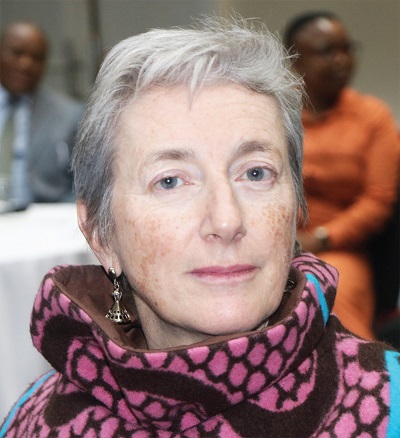By Thoboloko Ntšonyane
MASERU – Last week witnessed the much acclaimed inaugural of the Justice Sector Coordination Forum, a gathering that unites key players within Lesotho’s justice system.
The participants were drawn from the Judiciary, Director of Public Prosecutions (DPP), Police, Law Society, Directorate on Corruption and Economic Offences (DCEO) to share thoughts and reach consensus on the possible direction they could pursue.
This forum is supported by the European Union (EU) financed programme titled “Support for reforms and strengthening of governance in Lesotho programme”.
Addressing the participants, the EU Head of Delegation, Paula Amadei said the overall objective is to foster rule of law, good governance, human rights and gender equality.
She stressed that one of its key elements is access to justice for girls, women and marginalized groups.
“Under the programme, two technical experts from Malawi are deployed and based in the Ministry of Justice, Law and Parliamentary Affairs, directly supporting the Ministry. In addition, the European Union has mobilized funds of more than M38 million to benefit Justice Sector institutions and oversight bodies.
“These funds will be implemented from this month onwards over the next three years. The support will notably allow the beneficiary institutions to expand their services outside Maseru and make them accessible where they are needed but not available at the moment. The programme responds to the commitment of the EU not to leave anyone behind, bringing justice and redress to rural areas and vulnerable groups,” she said.
Amadei highlighted that this is yet another project that the EU supports within the justice sector. It will be recalled that last year, the Judiciary launched the Strategic Plan for 2022-2027 as well as their website, a programme implemented by the United Nations Development Programme (UNDP) with the support of the EU.
The EU Head of Delegation said this project was first designed in 2020 but only came to effect in March of this year, adding that they had to adjust the programme to the new circumstances and align it to the priorities of the new administration.
She added: “To do so in the last months the Ministry of Justice, Law and Parliamentary Affairs, with support of the technical experts, held individual meetings with all your institutions to understand how the programme could be adapted to the present context.
“I want to underline that the EU’s support is tailored to the needs expressed by your institutions.”
She said the programme is further expected to help foster citizens ‘trust in the institutions.
Quoting the Afro barometer survey undertaken in 2022 where it showed that the citizen’s trust in key state institutions has eroded over the last 15 years.
The survey found that about 42% and 30% of citizens have trust in the work of the courts and the police respectively.
To change these negative perceptions, she noted that the commitment and actions of these institutions as well as individuals driving them are needed.
Amadei said once the courts decide on the pending legal challenges, she hopes that the Parliament can complete the ongoing reform process in line with the wishes of the people of Lesotho.
“The success of the programme however depends crucially on the adoption of the constitutional reforms that provide the framework for the planned initiatives. Strengthening the independence and effectiveness of the justice system and of the oversight bodies,” she said.


